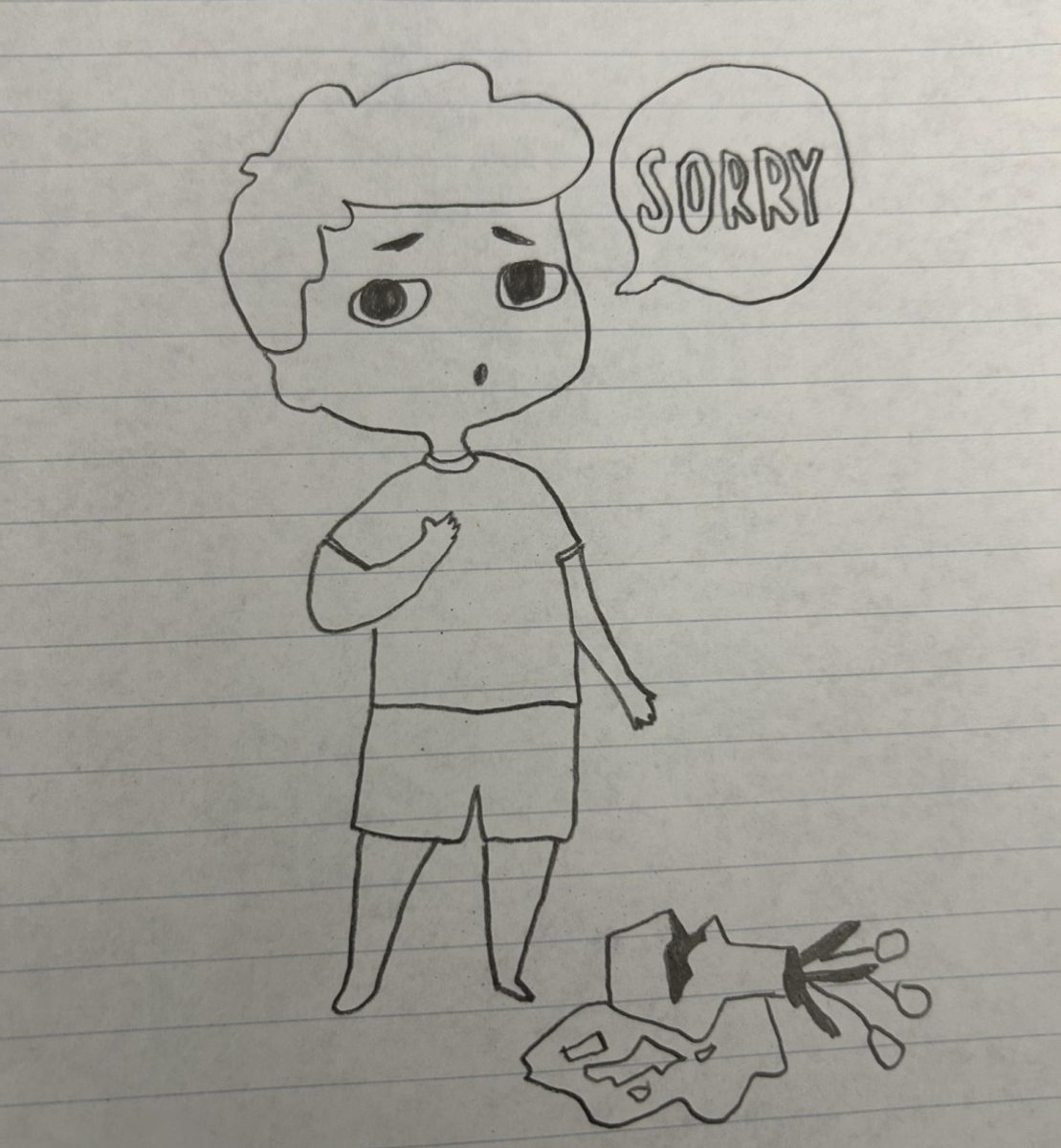“Apologize to your brother right now,” my mom said. “I already told you it was an accident,” I huffed.
My brother walked away with a disappointed look on his face. “Fine. I’m sorry,” I yelled after him.
“I’m sorry” holds a key significance in our human interactions not only with sibling altercations but for many situations. Issuing an apology provides a discussion that fosters self accounting, healing relationships, and provides harmony in society. Offering a sincere apology demonstrates empathy and acknowledgement of one’s wrong doing. Trust and mutual respect are built upon this very phrase where humans can connect through empathy. When an individual expresses their feelings of regret, an acknowledgment of impact is made. Whether it is verbal or physical, “I’m sorry” creates a foundation for open communication.
In order to have resolution during conflict, “I’m sorry” is a phrase that starts the healing process. No human is perfect, so at one point in time “I’m sorry” will be said. During arguments the idea of being the bigger person and apologizing leads to resolution. By taking on the responsibility to admit the mistakes that were made, the two parties can compromise and come together again. Being vulnerable can repair immediate damage dine and help lengthen long-term relationships
Even small apologies can make a difference. “A time where I was sorry was when I yelled at my sister for coming into my room without knocking, but she had just brought me something from the store. If I wouldn’t have said sorry then she wouldn’t have known how bad I felt,” said Jr. Claire Gibson. Whether it’s to a significant other, a family member, or even a stranger an apology can make a big impact. “I accidentally missed a day of work without realizing it. It was a no call no show and they were understaffed so I felt bad and apologized the next day,” said Sr. Jenna Heck.
Apologies are not only for the other party involved but for individual growth. To identify a fault and verbally admit to a mistake is a fundamental aspect of self-development. Taking time alone to reflect on past actions, learning how to fix past behaviors that negatively impacted a relationship, and striving to change your normal responses for future scenarios is the action behind an “I’m sorry.” Apologies are critical to help foster a cycle of continuous personal improvement.
However, apologies aren’t only for personal relationships. “I’m sorry” is needed for society norms. Influencers and political figures often have to apologize for their mistakes. Society has an important role in holding them accountable for what is and isn’t acceptable. These apologies cannot be empty in the eyes of society. A true display of genuine remorse and commitment to fix wrong doing must be seen in order for their forgiveness. Apologies gain back public trust and hold even the most powerful of society to an ethical standard.
Many influencers are scared of cancel culture. Cancel culture is when all support for a public figure stops because they have offended the public. In order to keep their influence, they are expected to issue a genuine apology. Even so, not all apologies are accepted if they are not seen as genuine. Isa Escu is a popular Tik Toker who is now in hot water after a video leaked of her racially offending her friend. She lost three hundred thousand followers and her apology was not received well by her audience. Many thought she was reading off a script and others said it felt forced. Forgiveness is never required but can be earned if an apology is done the correct way.
The phrase “I’m sorry” holds importance in everyday interactions as it provides a foundation for empathy, resolution, and growth. It mends the gap that is made when trust is broken and fosters a new understanding of different points of view. As social dynamics become more complex with age, the ability to offer a sincere apology remains consistent. Navigating how to maintain a healthy, respectful, and resilient connection between individuals and society can promote a positive change with two words, “I’m sorry.”







